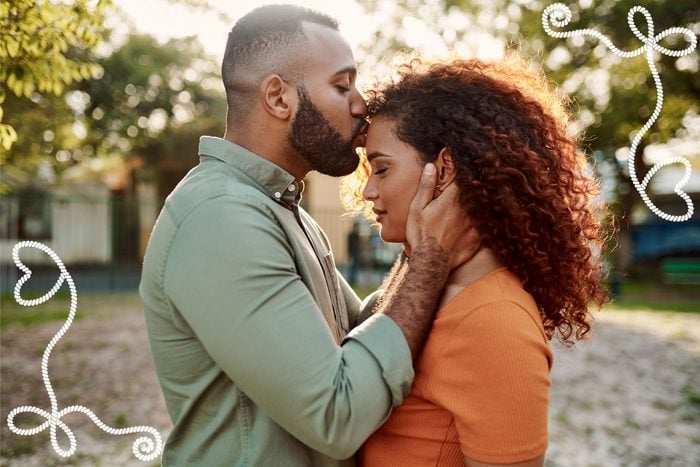Ever wondered what the secret sauce to a flourishing relationship is? It’s all about understanding the dynamics! In this fast-paced world, it’s easy to lose sight of what truly matters in a relationship. But don’t worry, we’ve got your back.
Understanding Relationship Dynamics

Signs of a Healthy Relationship Dynamic refer to the way individuals in a relationship interact and respond to each other. Grasping these dynamics is vital in identifying the health of a relationship.
What Makes a Relationship Healthy?
A relationship’s health rests on a stable foundation. Trust, for example, forms that foundation. Without trust, insecurities breed, and hostility may erupt, derailing any chance of a healthy relationship. Couples engage in various activities: whether it’s enjoying a common hobby — such as painting or hiking — or sharing a quiet evening at home. Consistent support during tough times underscores a bond that’s strong, resilient, and indicative of a healthy relationship.
Elements of a healthy relationship also include reciprocity. That’s a willingness to give and take without keeping score. It’s about overlooking trivial things and focusing on greater happiness. Respecting one another’s personal space is key as it nurtures independence and fosters trust.
The Role of Communication and Respect
Communicating effectively plays a vital role in healthy relationship dynamics. It propagates transparency, eliminates misunderstanding, and fortifies the connection between partners. When partners understand, respect and validate each other’s feelings, it unclogs emotional bottlenecks. For instance, using ‘I’ statements, such as “I feel hurt when you do that,” promotes emotional honesty and reduces blame.
Conversely, respect acts as the backbone of any healthy relationship. It encapsulates accepting differences, embracing each other’s unique traits, and acknowledging your partner for who they are. It’s about trusting your partner’s decisions and supporting them in their pursuits. Hence, communication and respect together shape a robust relationship dynamic.
Key Signs of a Healthy Relationship

A healthy relationship exhibits several tell-tale signs. A strong, resilient bond’s vital elements become apparent through mutual respect, effective communication, trust and honesty, support, encouragement, and individual identity maintenance.
Mutual Respect and Appreciation
Reverence each other’s individuality forms the cornerstone of mutual respect in a relationship. You appreciate each other’s differences and find beauty in your partner’s uniqueness. For instance, celebrating your partner’s accomplishments – be it a successful presentation at work or skills at a hobby – fosters appreciation. Also you can check the obvious signs that you are in a Healthy Relationship.
Effective Communication
Clear, open, and straightforward exchanges stand at the heart of effective communication. Engaging in regular conversations about your day, aspirations, and concerns keeps the connection alive. Examples include discussing plans, sharing thoughts about a movie, or expressing feelings about a recent life event.
Trust and Honesty
Trust doesn’t exist without honesty. Reliable partners don’t hide unpleasant truths but discuss the negative. For instance, admitting a mistake or sharing a regretful past experience. Additionally, trust exudes when a partner keeps a promise or follows through after making a commitment, like completing a shared household duty or remembering important dates.
Support and Encouragement
Loving relationships exhibit backbone support and encouragement. Supporting partners help each other through life’s ups and downs. Additionally, they provide words of encouragement during challenging moments. Say, cheering for each other during a sporting event or comforting after a letdown.
Individual Identity and Independence
Maintain your distinctive individualities and respect each other’s autonomy, even in a devoted relationship. Examples include pursuing personal interests or hobbies, spending time with your friends, and making independent decisions. Also, it’s about balancing togetherness and alone time, which fosters a sense of independence and healthy interdependence.
The Emotional Aspects

The emotional facets of a robust relationship dynamic extend beyond showing affection. It dives deep into mutual emotional understanding, adept conflict resolution, and nurturing positive interactions.
Emotional Support and Understanding
In a healthy relationship, partners express potent emotional support, lessening sorrow during tough times. Your partner’s pains become yours, and joys double up. You both prioritize understanding, mirroring each other’s emotions and being empathetic. For instance, even simple actions like listening attentively to your partner’s stressful day, empathizing with them, and offering comforting words, reflect a profound emotional understanding.
Conflict Resolution
Resolving conflicts effectively takes precedence in sound relationship dynamics. You don’t avoid disagreements, rather address them constructively, without causing verbal or emotional harm to your partner. Employ calm, respectful communication to express discontent or dissatisfaction, showing a willingness to find middle ground. Also, forgiveness post-conflict is significant. Say, after a heated argument on leaving the cap off the toothpaste, it’s more conducive to talk about why this bothers you, listen to your partner’s reasons for forgetting, and finally, forgive each other.
Positive Interactions
Nourishing positive interactions every day is essential in a healthy relationship. Praise, compliment, show gratitude, express love, dream, and laugh together. It’s important to maintain a balance of five or more positive interactions to every negative one, based on Gottman’s “Magic Ratio”. For example, a loving good morning kiss, an appreciative comment for a delicious meal prepared, a supportive hand during a tough task, exhibit everyday positive interactions. Remember, these gestures uphold your bond, helping it thrive.
Behavioral Indicators of Healthy Relationships

Building on previous sections, this part of the article explores specific behaviors that signal a healthy relationship dynamic.
Collaborative Decision-Making
In robust partnerships, both individuals engage in collaborative decision-making. Each person’s thoughts, feelings, and opinions matter, leading to decisions that appreciate everyone’s input. For instance, from deciding which movie to watch on a Friday night to major choices like relocation for a job opportunity, it involves active conversation and compromise. Respecting each other’s perspectives during discussions, while contentiously seeking consensus, exemplifies a collaborative approach.
Fairness in Relationship Roles
Fairness in relationship roles implies equity, not equality, reflecting that individuals in a relationship don’t lose their uniqueness. Instead, they bring different strengths to the partnership. For example, one partner might be better at handling finances while the other excels at domestic duties. This doesn’t become an issue as long as both individuals feel that the balance of roles, responsibilities, and power is fair. Importantly, each person must feel they’re contributing and benefiting equitably from the partnership.
Consistent Affection and Intimacy
Consistent affection and intimacy forms another cornerstone of healthy relationships. While the level of intimacy may fluctuate, the underlying connection and emotional closeness should be constant. Regular expressions of love, whether through physical affection like hugging and holding hands, or through verbal affirmations, build a stronger bond. Intimacy isn’t limited to physical or romantic acts; sharing secrets, dreams, and fears also strengthens the emotional bond.
Importance of Maintaining Healthy Dynamics

Keen emphasis on maintaining healthy dynamics boosts healthy relationships, ensuring longevity and mutual happiness. Positive relationship dynamics act as a catalyst for personal growth and emotional stability, amplifying the quality of life.
Long-Term Relationship Benefits
A focus on healthy dynamics reaps long-term benefits for relationships. You experience heightened understanding, perpetual respect, and deeper connections with your partner, promoting effective teamwork. Continuous positivity prevails, overcoming any dispute or difference with effective communication.
- Satisfaction becomes a two-way street, enabling shared happiness and mutual respect, such as frequent date nights and moments of mutual celebration.
- Stability often enhances, bolstering ties through trust and love. It’s like surprise vacation trips together or supportive responses in times of need.
- The je ne sais quoi of your bond intensifies, strengthening the emotional connection. Daily small gestures, like a good-night kiss or their favourite dish prepared unexpectedly, foster long-lasting passion and intimacy.
The duration of relationships tends to extend given the benefits acquired, keeping love and understanding perpetually thriving.
Impact on Mental and Emotional Health
Healthy relationship dynamics contribute significantly to mental and emotional health. They work as a safety net, safeguarding you from stress, loneliness, and negativity.
- Emotional resilience improves. Regular expressions of love, like saying, “I love you” or hugging frequently, establish an emotional safety net, helping combat stress or emotional setbacks.
- It boosts mental well-being. Effective problem-solving discussions ease anxiety, promoting peace of mind. Light-hearted conversations, reminiscences, or funny anecdotes enhance personal happiness.
- Self-esteem heightens. Fairness in relationship roles boosts confidence, imparting a sense of worthiness. Acts of acknowledgment, praises, or appreciating efforts done, foster a feeling of being valued.
Yes, healthy relationship dynamics are an antidote, not just a fuel for love, but a remedy for psychological wellness. They act as therapy without an appointment, promoting an overall positive life perspective.
Conclusion
You’ve learned the signs of a healthy relationship dynamic. From mutual respect to effective communication, trust, and support, these factors are key to a thriving connection. Emotional aspects like understanding and positive interactions play a significant role too. Remember, it’s not just about love. Healthy dynamics are also a remedy for psychological wellness, acting as a safety net against stress and negativity. They boost your emotional resilience, mental well-being, and self-esteem. So, keep an eye on these signs and strive to maintain them. After all, they’re not just indicators of a healthy relationship but also catalysts for a positive life perspective. Don’t underestimate the power of a healthy relationship dynamic. It’s far-reaching, influencing not only your love life but your overall well-being. Embrace these dynamics and watch your relationship flourish.
Frequently Asked Questions
What are the signs of a healthy relationship?
A healthy relationship is characterized by mutual respect, effective communication, trust, support, and the ability to maintain individual identities. These dynamics foster positive interactions and understanding between partners.
What are the emotional aspects of a healthy relationship?
Key emotional aspects of a healthy relationship include understanding, support, effective conflict resolution, and positive interactions. These contribute to a deeper connection and bond between partners.
How do healthy relationship dynamics benefit long-term relationships?
In long-term relationships, healthy dynamics contribute to heightened understanding, perpetual respect, and deeper connections. Essential behaviors like collaborative decision-making, fairness in roles, and consistent affection are critical.
How can a healthy relationship affect mental and emotional health?
A healthy relationship can significantly affect mental and emotional health. It acts as a safety net against stress and negativity, thereby boosting emotional resilience, mental well-being, and self-esteem.
What role do healthy relationship dynamics play in life perspective?
Healthy relationship dynamics serve as a fuel for love and remedy for psychological wellness. They promote a positive life perspective, making individuals more resilient and optimistically inclined towards life.

